

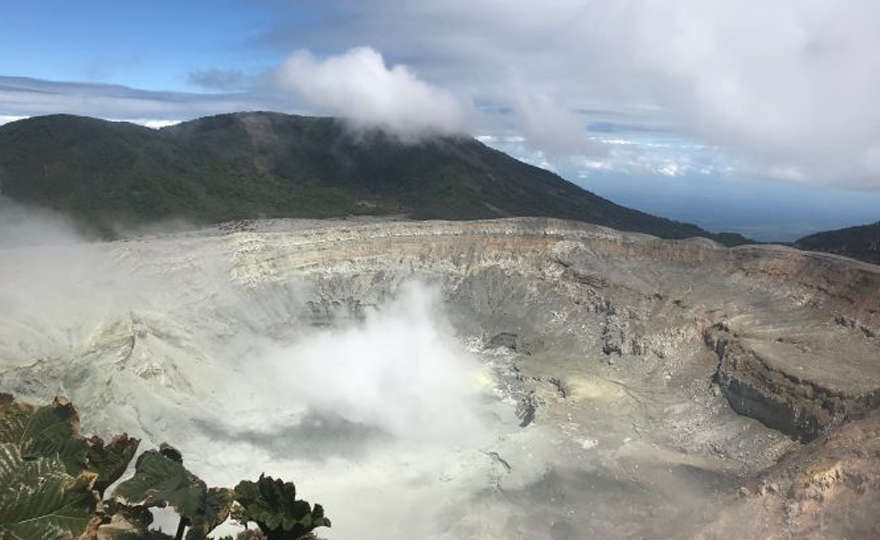
There are three well-known volcanoes here in Costa Rica which stand next to each other in a row, Volcán Irazu, Volcán Barba, and Volcán Poás. So far I have seen two of these, Barba and Poás. Although they stand right next to each other, these two volcanoes are remarkably different from each other, and also provide visitors with very different experiences.
As many people know, when a volcano erupts it often blows away its top and creates a crater. Both of these volcanoes have a crater that is visible to the visitor. The first volcano I visited was Poás, which is reach by taking a short walk along a flat cleared and open path to a wooden platform with differing levels which overlook the crater. Visitors must wear a helmet to protect them from potential debris which could fall on them from the smoke coming out of the crater and the surrounding area. Poás is still a very active volcano. In fact, it erupted the very day after we visited! I admit, we were lucky. The crater had smoke coming out of it, which smelled like sulfur. Some yellow and green could be seen on the floor of the crater as it came out from inside the rock. The walls and much of the surrounding areas were exposed rock.
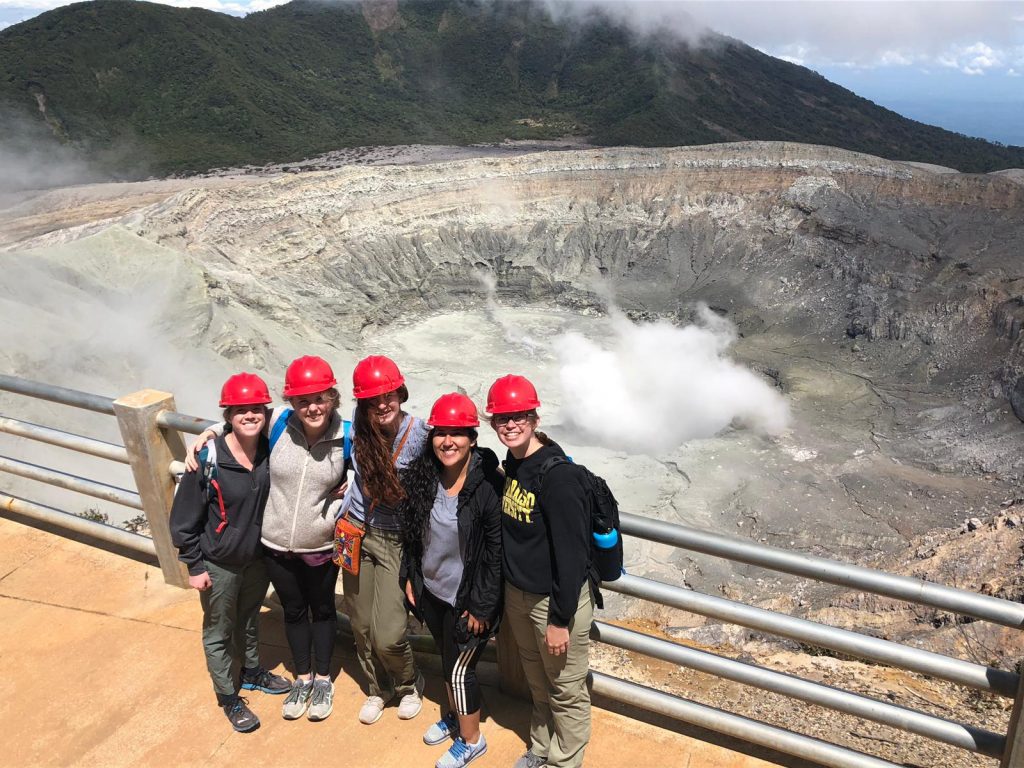
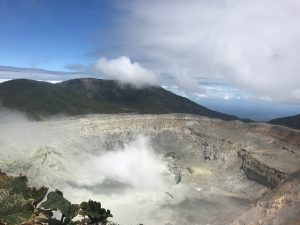
Volcán Barba, by contrast, seemed as if it must have been a very long time since it has erupted. In order to reach the volcano, I needed to hike on a narrow trail in dense forest and uneven terrain for a number of kilometers. The walls of the crater and surrounding areas were covered by dense trees and ferns like the rest of the forest, and the crater itself was filled with water, forming a lake.
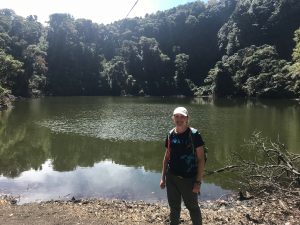
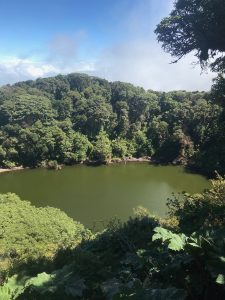
Before visiting Costa Rica, I had never seen a volcano closely before. I was even more impressed when seeing Vocán Barba after having seen Volcán Poás because Poás gave me a perspective, or some context, for seeing Barba. The volcano craters were different because they formed at different times and in different ways. They are similar to each other because the basic shape of them started out in the same way, with an eruption from rock in relatively the same geographic area. But, they are different today because of what they have been exposed to. I think this concept can be applied to people as well. We are all people, with the same basic form.
But, we are different from each other because of our stories. The craters are very similar shapes, and so when I saw Barba I could imagine that it once looked dry and empty like Poás. I imagine it must have taken a lot of time and a number of geomorphic processes for Volcán Barba to become what it is today. If I had not seen Volcán Poás first, I am not sure I would have understood what I was looking at. I wonder how often I look at something without a context for what I am seeing. Having context allows a person to have a greater appreciation for what is in front of them. I hope that, in a much larger way, living for a semester in Costa Rica will give me a context to see the United States when I come back home.